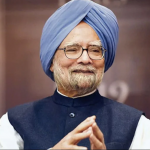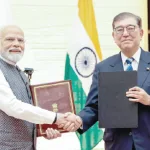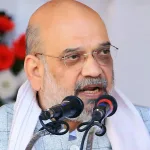Self-contradictory stand on vital issues has become an inalienable attribute of our politicians. Kashmir centric politicians and political parties are no exception. They in fact are more susceptible to take ephemeral stand on vital issues of public interests, losing sight of the impact of their statements on their own stand on various other issues.
There are many issues that can be enumerated in this regard. Right now let us concentrate on politics over poverty. Poor and under-privileged continue to be subject of politics without any substantial benefit being delivered to them on ground. Social welfare of people is the major casualty in this competitive politics, even though every political party and politician exuberantly proclaims their commitment to welfare of the disadvantaged population.
At every conceivable opportunity, these politicians claim Kashmir is better than states like Bihar and UP on economic parameters like per capita gross state domestic product (GSDP). We have nailed lies of centre they declare. And in the same breath, they claim several families are living below the poverty line under “great distress”.
Poverty Eradication Priority & PDS
Poverty alleviation and eradication of depravity in its all forms and promoting collective prosperity has been prioritized by even the international community. This has been pronounced as one of the most urgent global goals, incorporating it into the 2030 UN Agenda for Sustainable Development. It has gained much prominence at both the national and international levels. These efforts have borne some results also as it is claimed that global extreme poverty was steadily declining, with the share of the extreme poor plunging from 36% in 1990 to less than 10% in 2018.
Public Distribution System (PDS) is a system where poorer sections of the society can procure food from the Government regulated ration shops, which in turn receives the food supply from Food Corporation of India (FCI). PDS evolved as a system of management of scarcity through distribution of food grains at affordable prices. It is not intended to make available the entire requirement of any of the commodities of a household or section of the society.
PDS is operated under the joint responsibility of the central and state/UT Governments. The central Government has responsibility for procurement, storage, transportation and bulk allocations of food grains to the state Governments. The operational responsibility including allocation within state, identification of eligible families, issuance of Ration Cards and supervision of the functioning of fair price shops (FPS) rests with the State Government.
Introduced around World War II, expanded by the 1970s, PDS evolved into a universal scheme for the distribution of subsidized food. Till 1992, it was a general entitlement scheme for all consumers without any specific target when the Revamped Public Distribution System (RPDS) was launched with a view to strengthen and streamline the PDS as well as to improve its reach in the far-flung, hilly, remote and inaccessible areas where a substantial section of the underprivileged classes lives.
In June, 1997, the Government of India launched the Targeted Public Distribution System (TPDS) with a focus on the poor and divided beneficiaries into two categories: Households below the poverty line or BPL; and Households above the poverty line or APL.
Antyodaya Anna Yojana (AAY) was launched in December 2000 after a National Sample Survey exercise pointed out that about 5% of the total population in the country sleeps without two square meals a day. Making TPDS aim at reducing hunger among the poorest segments of the BPL population numbering around one crore at that time was a huge step.
In September 2013, Parliament enacted the National Food Security Act, 2013. The Act relies largely on the existing TPDS to deliver food grains as legal entitlements to poor households. This marks a shift by making the right to food a justifiable right.
NFSA & WTO
National Food Security Act (NFSA) was projected as a flagship scheme before 2014 general election to the Lok Sabha. It was signed into law on 12 September 2013 and propagated as the Right to Food. But details about conditions agreed upon at WTO were concealed.
Industrialized countries, including the US and European Union members have always been focused more on trade facilitation agreements and have avoided Agreements on Agriculture (AoA) as that covers trade distorting farm subsidies provided by these developed countries to their farms affecting directly livelihood of poor farmers in developing countries.
Before Bali Ministerial meeting of December 2013 India had demanded that no member country can drag another member to the dispute settlement mechanism till a permanent solution is found under AOA and Agreement of Subsidies and Countervailing Measures (ASCM).
Though India was firm on its stand on subsidies till the last moment and its Minister for Industry and Commerce insisted that “food security was a non-negotiable issue and he would prefer no deal to a bad deal”, the text of the final accord showed India’s compromised position
UPA government of which National Conference was an integral part agreed to conditions that were not part of the G-33 (a coalition of developing countries) proposal. WTO reached its first-ever trade reform deal in Bali on December 7, 2013 after India mellowed its stand on agriculture subsidies. Civil society groups claim that India wilted under pressure from the US and agreed to accept conditions that were not part of the G-33 proposal.
USA government accused India of unfairly subsidizing its farmers by paying a support price (MSP) above market prices to purchase food grains from small-scale farmers to distribute among millions poor Indians, two-thirds of the country’s people. There is, we need to remember, a limit of 10 per cent for subsidies used to buy food to be stocked for distribution to the poor through PDS in India. “Public stockholding” (“PSH”) is currently the most controversial subject in the WTO’s agricultural negotiations.
Spurious Ration Cards
Issue of fake ration cards is becoming an issue for out maneuvering each other by cunning politicians. This is visible more in Jammu Kashmir. Facts are being ignored, perhaps consciously. This in my opinion is a major reason for inability to solve the issues of genuine BPL families.
Under strains of WTO obligations government was constrained to cap coverage under NFSA at 75%/50% for rural/urban population at the all India level, corresponding to which, State-wise coverage was determined by the Central Government for each State/UT. Planning Commission determined the State-wise coverage by using the NSSO Household Consumption Survey data for 2011-12. Within the coverage under TPDS determined for each State, the work of identification of eligible households is to be done by States/UTs.
Under NFSA Act 63.55% of the rural population comprising of 58.05 lakh souls and 47.10% of the urban population comprising of 16.08 lakh souls totalling to 74.13 lakhs souls were covered in Jammu and Kashmir State under priority category and 45 lac souls under non-priority category.
As an outcome of the use of technology in TPDS operations since 2013, i.e., digitization of ration cards/beneficiary databases, Aadhaar seeding, de-duplication process, identification of duplicates, ineligible records, deaths, permanent migration of beneficiaries, etc. all States/UTs have been able to weed-out approx. 5.87 crore ration cards between 2013 to 2024 (till date) in order to achieve rightful targeting.
The government’s massive digitisation push has transformed PDS. The overhaul of the system, which serves 80.6 crore beneficiaries, has led to the removal of 5.8 crore fake ration cards through Aadhaar-based authentication and electronic Know Your Customer (eKYC) verification.
According to the union ministry, nearly all 20.4 crore ration cards have been digitised, with 99.8 per cent linked to Aadhaar and 98.7 per cent beneficiaries’ credentials verified through biometric authentication. The ministry has deployed 5.33 lakh e-PoS devices across fair price shops nationwide, enabling Aadhaar-based authentication during distribution and ensuring the rightful targeting of beneficiaries. The ‘One Nation One Ration Card scheme’ has enabled nationwide portability, allowing beneficiaries to collect rations anywhere in India using their existing cards
Cancellation of Ration cards is therefore a technical issue. But the capping of beneficiaries number is due to 2013 hurried agreement by UPA which NDA has tried to address at WTO afresh. Politicians of all hues must come together to find a lasting solution. Scoring brownie points may bring momentary benefits for some vocal individuals but will not help in mitigation of distressed victims.
(The Author is a former MLC and spokesperson of BJP JK-UT)








